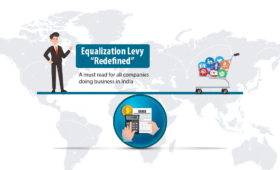The National Education Policy, 2020 was recently approved by the Union Cabinet of India. The policy outlines the prospective vision for the country’s new education system and is a comprehensive framework designed for education from the elementary to the higher level, including vocational training in rural as well as urban India.
Some of the common aims of the National Education Policy 2020 include:
- To make India a “global knowledge superpower.”
- To rename the Ministry of Human Resource Development to the Ministry of Education.
- To restructure the framework of education in India.
- To increase the Gross Enrolment Ration in higher and vocational education from 26.3% in 22018 to 50% by 2035
- To add approximately 35 million new seats to institutions of higher education.
- To universalize education from preschool to secondary level with 100% Gross Enrolment Ratio in education provided by schools by 2030
- To set up the Gender Inclusion Fund and Special Education Zones for groups and regions that are disadvantaged.
- To increase the public investment in the Education sector to at least 6% of GDP.
How will the NEP reform school education?
The National Education Policy 2020 will primarily work upon universalizing education from preschool to the secondary level with a 100% Gross Enrolment Ratio in school education by the year 2030. It will also work on making almost two crore children get primary education through an open system of schooling.
Furthermore, the current 10+2 system will be replaced by a new curricular structure of 5+3+3+4 for children between the age group of three to eight, eight to eleven, eleven to fourteen and fourteen to eighteen respectively. Furthermore, it will also cover children of ages 3 to 6 under an education curriculum, especially since this age group is a crucial age for the development of mental faculties of a child.
By doing so, it will give a child 12 years of schooling. It shall include three years of preschool or Anganwadi. The policy will also make the board examinations of Classes 10 and 12 easier and will allow all students to take the exam twice.
The governance systems of schools will also be changed, with independent authority and new accreditation framework regulating both the public as well as private schools.
Where studies are concerned, more emphasis will be given on Numeracy and Foundational Literacy, with no set separation between different academic, vocational and extracurricular streams. Additionally, every student from Class 6 onwards will be given vocational education, along with internships. Moreover, till Class 5, the teaching will be done in a student’s mother tongue or regional language, and no particular language will be imposed on them.
The progress of each student will be tracked using assessment reforms with a 360-degree Holistic Progress Card. Finally, a new National Curriculum Framework for Teacher Education (NCFTE) 2021 will be designed by the National Council for Teacher Education (NCTE) in consultation with the NCERT. Also, by the year 2030, teachers will require minimum degree eligibility of a 4-year integrated B.Ed. to be able to teach.
How will higher education be reformed by NEP?
The National Education Policy will increase the Gross Enrolment Ratio in higher education from 26.3% to 50% by 2035, and add almost 3.5 crore seats in the sector. It will also help to set up a Higher Education Commission of India (HECI) to replace the UGC and AICTE as an umbrella body. All forms of higher education, except medical and legal education, will be part of the HECI.
M.Phil. courses will be discontinued under the NEP. Furthermore, all courses at the undergraduate, postgraduate and PhD levels will be interdisciplinary. Undergraduate education will be broad-based, multidisciplinary and holistic, with a flexible curriculum. It will also integrate vocational education with different subjects
.
The Transfer of Credits earned from different HEIs will be facilitated by an Academic Bank of Credits digitally. Education will be internationalized through institutional collaborations, student and faculty mobility as well as Indian campuses of top universities of the world.
Additionally, Multidisciplinary Education and Research Universities (MERUs) will set up in accordance with IITs and IIMs to maintain a global education standard in the country. The National Research Foundation (NRF) will also be set up under the policy and will act as the apex body for the fostering of a strong research culture in higher education.
Finally, under the NEP, the affiliation of colleges will be phased out within 15 years, with a stage-wise mechanism being established to grant graded autonomy to colleges. Over this time, every college will be expected to develop into an autonomous degree-granting college, a constituent college or a university. Online and digital courses, research funding, etc., will also be taken for high-quality education.
What other reforms will be a part of the NEP?
A new autonomous body, the National Education Technology Forum will be created to provide students with a platform to exchange new and innovative ideas. Furthermore, a National Mission for the purpose of Mentoring will come under establishment, with senior as well as retired faculties offering short as well as long term professional assistance to university and college professors.
In light of the current pandemic, a comprehensive set of recommendations have also been included in the National Education Policy to promote online education. This will ensure alternative modes of quality education to students if and when traditional education is not available to them.




